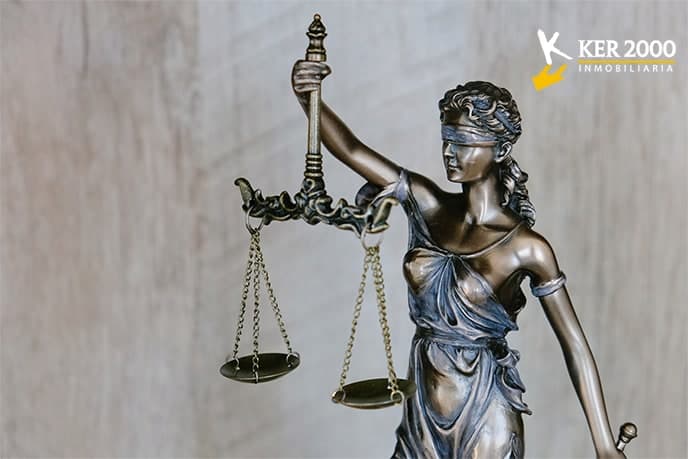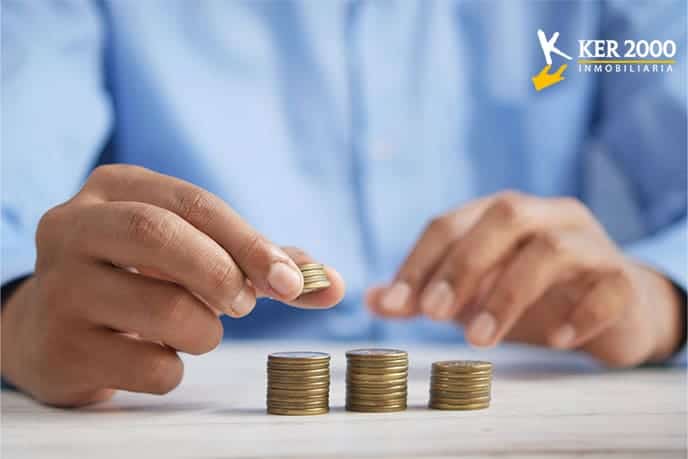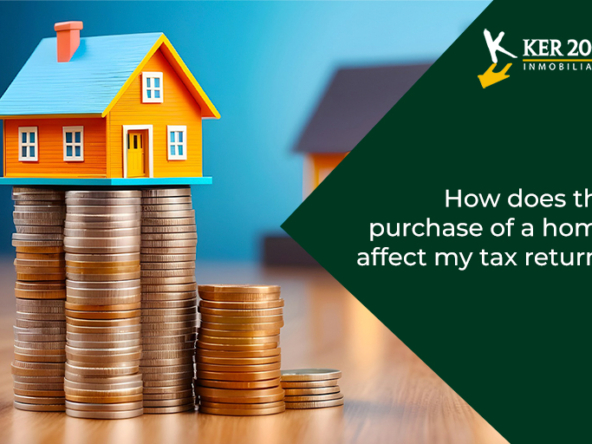After crunching the numbers, you’ve decided to buy a house. You are sure you have the necessary capital, and most importantly, everything is under control. Even so, you should not be too hasty. You could end up buying a property with encumbrances, i.e. one that has debts with the Property Tax (IBI), or with the community. Here are some tips to avoid unpleasant surprises after signing the title deeds of your new home like housing debts.
Who should take care of the debts on a property?
You should be aware that it is possible to sell a flat with debts. If you are unlucky enough to come across an dishonest seller, he or she will probably not be interested in settling the debts on the house. In that case, buying a home can become a nightmare.
Among the debts that can encumber a house we can find everything from registry debts to mortgages, debts related to the community of neighbours and municipal debts, such as the Real Estate Tax or debts to utility companies (water, electricity, gas, etc.), to name a few.

According to article 9 section E of the Horizontal Property Law, the new owner of a property or premises is liable with the property itself for the amounts owed to the community of owners. Therefore, they can be imputed from the overdue part of the year in which the purchase is made to the three calendar years prior to the purchase. What is clear is that the transferor or seller in a sale is never left without payment.
The new buyer would also be obliged to pay tax debts such as property tax, according to article 79 of the Ley General Tributaria (General Tax Law). This direct tax is payable from the moment you buy any property -flat, house, commercial premises or garage- and must be registered in the General Directorate of Cadastre. Article 78 of the Ley General Tributaria specifies exactly the IBIS that the municipal administrations could demand from the new buyer: basically the unpaid IBIS of the current and previous year.
It is possible that the local council may claim payment of the IBIS for the last four years, based on what is known as “derecho de afección”, as stated in article 64 of the Ley Reguladora de las Haciendas Locales. For this to be possible, the previous owner of the property must prove that he is unable to pay the debt on the property, either partially or in full, by declaring insolvency and bankruptcy. Therefore, he or she must demonstrate that he or she does not have sufficient assets to settle the outstanding IBIS.

Tips to avoid IBI or community debts
When you negotiate the purchase of a house, you have the key to get rid of any liability in case of non-payment. Since the law does not protect the buyer, you must make it clear that any outstanding debt will not be your responsibility. Before signing the deed of sale, you must make it clear that the seller will assume the payment of the outstanding amounts with the community of owners.
In addition, the seller must go to the notary with a certificate of being up to date with payments to the community. This certificate can be requested by the future buyer from the administrator of the property or, failing this, from the president of the community.
Regarding the IBI pending of payment, you can also state in the deed that it will not be your responsibility, but that of the previous owner. In this case, you can find out the exact amount of the debt. To do so, it will be sufficient to go to the corresponding local administration.

Check if there are any outstanding debts on the property
Before going to the notary, it is easy to check whether or not you have outstanding debts on the property. First of all, we recommend that you check the property tax and obtain the nota simple of IBI or via the website of the Colegio de Registradores (Association of Registrars). With the nota simple you can find out the state of the house in terms of various charges (mortgages, taxes, etc.).
You can then talk to the president of the community or the administrator of the property. They will tell you if there are any outstanding charges or IBI debts from the previous owner and will provide you with the certificate of current payments.
As for the municipal taxes, you can ask for proof of payment of IBIS from previous years at the corresponding town hall. These receipts can also be provided by the seller of the flat on a voluntary basis.
This video from Amigo Inversor teaches you how to buy a home in a way that does not affect you. If you also want to know what is the ideal time to do it, visit this article.
Conclusion
The purchase of a house cannot be decided lightly, that is why we recommend you to do it in the hands of professionals in the sector. In the event of non-payments on a property, its price also increases. For this reason, it is advisable to be proactive and take the appropriate measures, such as consulting and paying IBI debts. In addition, it is always possible to reach an agreement with the seller to settle the unpaid debts of the property.
This article by @Ker2000Inmo talks about what to do with a property with IBI or community debts. https://ker2000.com/en/debt-ridden-housing Share on XIf you are looking for a property in Valladolid do not hesitate to visit the properties available in the area.







